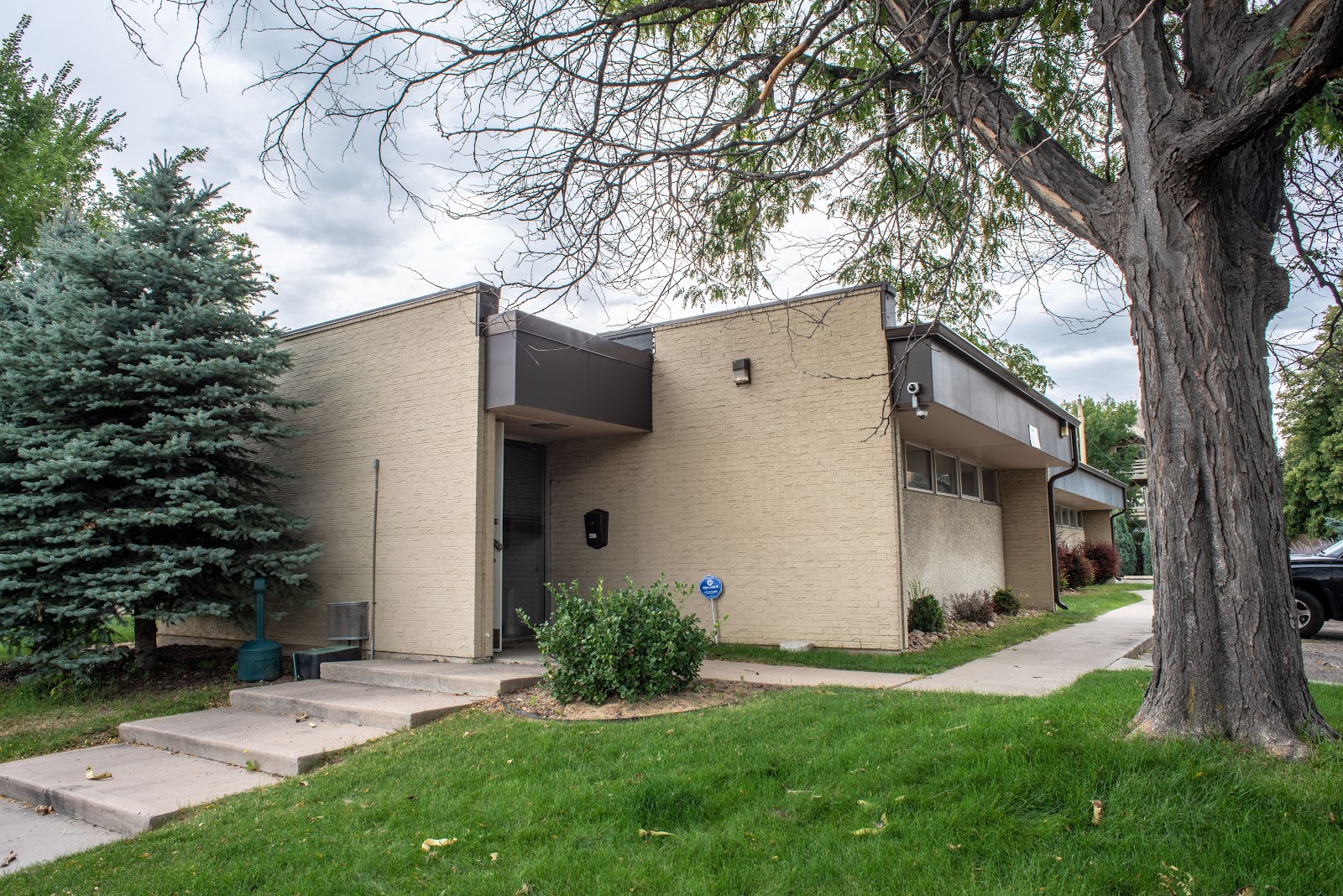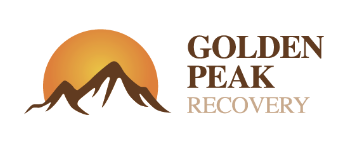Overview
Golden Peak Recovery is an accredited substance abuse treatment center that provides outpatient detoxification, for men and women from 18+ years of age. As part of their special programs, Golden Peak Recovery treats clients who have experienced trauma. To help patients achieve sobriety, Golden Peak Recovery provides intake assessments. Afterward, patients receive 12-step facilitation, individual psychotherapy, and group counseling during treatment. Golden Peak Recovery is located in Denver, Colorado, providing treatment for people in Adams County, accepting cash or self-payment, private health insurance, and monthly.
Golden Peak Recovery at a Glance
Payment Options
- Cash or self-payment
- Private health insurance
- Monthly
- 90 day cost
- Aetna
Assessments
- Comprehensive mental health assessment
- Comprehensive substance use assessment
Age Groups
- Young adults
- Adults
Operation
- Private for-profit organization
Accreditations
The Joint Commission:

The Joint Commission's addiction and behavioral health accreditation signifies a facility's commitment to high-quality care. It involves rigorous evaluations and assessments of clinical practices, ensuring effective, evidence-based treatment. Accreditation showcases a dedication to continuous improvement and patient safety, instilling trust among patients, families, and healthcare professionals. It's a mark of excellence in addiction and behavioral health care.
Effective date: 03/02/2019
Registration: 563412
Treatment At Golden Peak Recovery

Conditions Treated
Mental health treatment:
Mental health treatment involves various therapies and support services provided by licensed professionals to address mental health issues. These interventions, which can include therapy, medication, and holistic approaches, aim to enhance well-being, improve coping, and empower individuals to lead fulfilling lives. It's personalized, comprehensive care for mental health challenges.
Alcoholism:
Alcohol addiction is a condition where someone feels a strong and uncontrollable urge to drink alcohol, often leading to negative effects on their health, relationships, and daily life. To assist individuals grappling with alcohol addiction, various strategies exist. Initially, supervised detoxification may be necessary to ensure a safe cessation of alcohol consumption. Following this, counseling and therapy play a crucial role in addressing the psychological facets of the addiction. Engaging in support groups can also offer a sense of camaraderie and comprehension.
Opioid Addiction:
Opioid rehabilitation centers are dedicated to assisting individuals overcoming opioid dependence. They cater to those battling addiction from illicit opioids such as heroin, as well as those addicted to prescription medications like oxycodone. These facilities may provide a holistic approach that encompasses both physical care, which often involves medical detox and ongoing medical assistance (including medications), and psychological care through comprehensive therapy to tackle the root causes of addiction.
Substance use treatment:
Substance use rehabilitation is a structured program aimed at assisting individuals in overcoming their dependencies on drugs or alcohol. Through a combination of medical detoxification, counseling, and various therapeutic approaches, these programs strive to address the physical and psychological aspects of addiction. The goal is to equip individuals with the knowledge, skills, and support necessary to attain lasting sobriety, while also working to identify and address the underlying issues contributing to substance misuse. By fostering a supportive environment, substance use rehabilitation centers provide a pathway towards a healthier, substance-free life.
Co-occurring Disorders:
Dual-diagnosis rehabilitation centers specialize in the treatment of individuals who suffer from a co-occurring mental health disorder and a substance use disorder. This complex interplay between addiction and mental health can make recovery more challenging, as each condition may exacerbate the symptoms of the other. Dual-diagnosis rehabilitation centers offer an integrated approach that addresses both issues simultaneously and often includes a comprehensive assessment for an Integrated Treatment Approach through Holistic Therapies, including family therapy and aftercare treatment.

Levels Of Care
Partial Hospitalization Program:
A Partial Hospitalization Program (PHP) is an intensive, structured rehabilitation service designed for individuals exhibiting acute symptoms that demand significant intervention but not continuous 24-hour care. Typically spanning 3-5 days a week and lasting from 1 to 6 months, these sessions run for approximately 6 hours a day, focusing on activities like individual and group therapy. Some PHPs provide residential accommodations for overnight stays, while others are non-residential, allowing participants to go home at the end of the day.
Intensive outpatient treatment:
IOP, or Intensive Outpatient, is a structured level of care for addiction, mental health, or other conditions. Unlike inpatient care, it allows individuals live at home and maintain daily responsibilities. They attend multiple weekly sessions totaling 9-20 hours, including individual and group therapy, family counseling, and skill-building classes for symptom management and relapse prevention.
Detoxification:
Detoxification, often called detox, is like a reset button for the body after someone has been using drugs or alcohol. Its main job is to help people who want to quit these substances by easing the discomfort they might feel when they stop. Think of it as a way to clean out the harmful stuff in the body when someone has been using drugs or alcohol too much. Detoxification aims to make the process of quitting safer and less painful for the person.
Aftercare:
Aftercare treatment refers to the continued support and care that individuals receive following the completion of their primary treatment program for substance abuse or addiction. This phase aims to aid individuals in maintaining their sobriety, improving personal skills and coping strategies, and integrating back into society. Aftercare can include ongoing therapy, support group meetings, education, and monitoring, which are crucial for preventing relapse and promoting long-term recovery. Through a combination of community support, accountability, and personal development, aftercare provides a structured pathway for individuals to continue their recovery journey in a supportive environment.
Outpatient:
Outpatient programs are designed for individuals in stable medical condition with a low risk of relapse, often those who've completed inpatient treatment. These programs extend the foundation of prior treatment approaches, offering continuous addiction guidance and resources for sustained recovery. For those transitioning straight from detox, medical and psychological assessments are typically conducted, leading to the development of individualized treatment strategies. The majority of outpatient rehab centers provide diverse care levels, customized to each client's unique requirements.

Treatment Modalities
12-step facilitation:
12-Step Facilitation is a structured approach employed in rehab facilities to guide individuals through a 12-step program, such as Alcoholics Anonymous or Narcotics Anonymous, to support their recovery from addiction. This facilitation focuses on acceptance, surrender to a higher power, and engagement in a community of support. By meticulously working through each step, individuals are encouraged to develop self-awareness, seek amends, and cultivate a sober, healthier lifestyle through ongoing participation in a recovery-oriented community. This method aims at ensuring a lasting recovery by instilling a sense of accountability and fostering a supportive network of like-minded individuals.
Individual psychotherapy:
In individual therapy, a person engages in a one-on-one session with a qualified therapist or counselor. This therapeutic approach is crucial in successful substance abuse treatment because it delves into the underlying causes of addiction, addressing issues the individual may encounter in their familial, social, and professional or academic environments.
Group counseling:
Group counseling provides a supportive environment where individuals share personal experiences and insights, under the guidance of a professional counselor. It facilitates self-awareness, fosters interpersonal learning, and helps members work through personal and relational challenges. Through shared dialogue and reflection, individuals learn coping strategies, gain emotional support, and experience personal growth within a communal setting.
Family counseling:
Family counseling is a therapeutic approach that addresses the dynamics, interactions, and challenges within a family unit. Through guided discussions and interventions, a trained counselor helps family members understand one another, resolve conflicts, improve communication, and strengthen their bonds. This form of therapy can be beneficial for families facing transitions, stressors, or behavioral issues, promoting understanding and facilitating positive change in the familial environment.
Marital/couples counseling:
Whether a marriage or other committed relationship, an intimate partnership is one of the most important aspects of a person's life. Drug and alcohol addiction affects both members of a couple in deep and meaningful ways, as does rehab and recovery. Couples therapy and other couples-focused treatment programs are significant parts of exploring triggers of addiction, as well as learning how to build healthy patterns to support ongoing sobriety.
Life Skills:
Life skills training equips individuals with essential competencies, such as time management, career planning, financial literacy, and effective communication, to navigate the challenges of daily life. These skills are foundational to achieving not just sobriety but a thriving, fulfilling life post-addiction. Such training lays the groundwork for sustainable success and long-term recovery.
Cognitive Behavioral Therapy:
Cognitive Behavioral Therapy (CBT) is a evidence-based psychotherapeutic approach that aims to address dysfunctional emotions, behaviors, and cognitions through a goal-oriented, systematic process. It involves identifying and challenging negative thought patterns and beliefs and replacing them with more constructive ways of thinking and behaving. CBT is commonly used to treat a variety of mental health disorders, including depression, anxiety, and phobias.
Dialectical Behavior Therapy:
Dialectical Behavior Therapy (DBT) is an evolved version of Cognitive Behavioral Therapy (CBT) that aims to assist individuals in recognizing and influencing the interplay among their thoughts, emotions, and actions. DBT is particularly beneficial for those grappling with self-harming behaviors, including self-inflicted injuries like cutting, as well as suicidal ideations or tendencies. Clinically, it has shown effectiveness in managing intense emotions and conditions such as Borderline Personality Disorder.
Motivational Interviewing:
Motivational Interviewing (MI) in addiction treatment is a client-centered counseling style aimed at promoting behavior change by helping clients explore and resolve ambivalence. Through empathetic engagement and evoking change talk, MI empowers individuals to harness their own motivation to overcome addiction, leading to a self-directed path to recovery. This approach respects individual autonomy while supporting positive change in a compassionate, non-confrontational manner.
Trauma-related counseling:
Trauma therapy addresses the deep-seated emotional and psychological wounds often linked with substance abuse disorders. Recognizing that traumatic experiences can be a root cause or a significant contributing factor to substance addiction, this therapeutic approach seeks to help individuals understand, process, and heal from their traumas. Doing so fosters emotional healing and bolsters the individual's chances of long-term recovery from addiction. Integrating trauma-informed care into addiction treatment ensures a comprehensive approach that addresses substance abuse's symptoms and underlying causes.
Creative Arts Therapy:
Creative Arts Therapy is a therapeutic technique that harnesses the power of the arts— including visual arts, dance, music, and drama—to help individuals express themselves, explore their emotions, and improve their mental, emotional, and even physical well-being. Through engaging in the creative process under the guidance of a trained therapist, individuals can uncover and work through underlying issues, improve self-awareness, and develop coping skills in a safe and supportive environment. This form of therapy is used to treat a variety of mental health conditions and is beneficial for people of all ages.
Ancillary Services
Special Programs
- Clients who have experienced trauma

Additional Locations
Contact Information
DISCLAIMER: The facility name, logo and brand are the property and registered trademarks of Golden Peak Recovery, and are being used for identification and informational purposes only. Use of these names, logos and brands shall not imply endorsement. BetterAddictionCare.com is not affiliated with or sponsored by Golden Peak Recovery.






